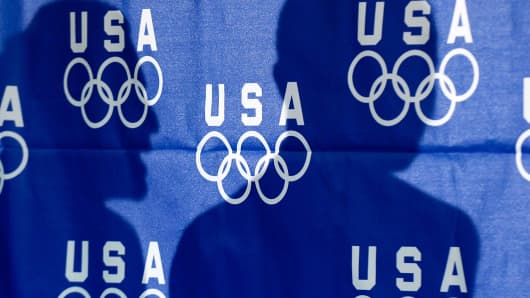The United States Olympic Committee announced on Friday that it will create an Infectious Disease Advisory Group to help identify and establish best practices regarding the mitigation, assessment and management of infectious disease.
“The health and safety of our athletes, and our entire delegation, is our top priority,” said USOC CEO Scott Blackmun in a statement. “I’m grateful to the diverse group of medical experts that have agreed to provide Team USA with the information and resources necessary to stay healthy and compete successfully.”
Chaired by Dr. Carrie Byington of the University of Utah Health Care, the group will assist the USOC in answering individual questions from delegation members regarding disease and developing updated educational materials for athletes and staff.
All of the participants in USOC’s Infectious Disease Advisory Group are doctors of medicine who have extensive experience dealing with infectious disease in patient populations that travel internationally, according to the USOC.
Though the statement made by the USOC did not explicitly mention the Zika virus, the mosquito-borne illness is definitely top of mind for officials preparing for the 2016 Summer Olympic Games in Rio de Janeiro, Brazil.
Last month, the CDC issued travel guidance for the Olympic games which included the recommendation that pregnant women consider not going to the games. It further recommended that pregnant women use condoms throughout their pregnancies if their male partners attend the Olympics.
Brazil is investigating thousands of cases of babies born with abnormally small heads thought to be linked with Zika, a mosquito-borne virus circulating in Latin America and the Caribbean.
In this small case series, Zika virus infection during pregnancy was associated with a range of outcomes, including early pregnancy losses, congenital microcephaly, and apparently healthy infants, the CDC said.
Microcephaly is a birth defect associated with undersized heads and developmental problems.
After reports that the USOC advised athletes to consider not attending the Olympics if they fear the virus, the committee vehemently denied this claim last month.
The USOC noted that it is monitoring the situation through the CDC and have ongoing contact with the International Olympic Committee. In addition, Joao Grangeiro, the organizers’ medical director, noted that the mosquito count should fall in August during Brazil’s winter.
“Athletes are not at risk,” added Grangeiro. “We will have Summer Games, but for us it’s winter time.”
[“source -pcworld”]




